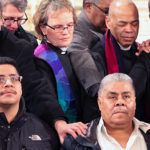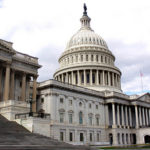NASHVILLE, Tenn.—A dispute over who can lead student religious groups has left Americans uneasy, but few want to see groups punished for requiring their leaders to hold specific beliefs or practices.
A new study from Nashville-based LifeWay Research finds mixed opinions about whether student religious groups should be allowed to mandate leaders’ beliefs or, because of their religious beliefs, restrict LGBT members from leadership roles. Yet nearly seven in 10 say colleges should not withhold funding or meeting space from such organizations.
The issue has emerged in recent years on college campuses from California to Maine. Student groups say their belief statements and ethics define their identity. College officials—citing what are known as “all-comers” rules—insist groups and their leadership be open to all students, no matter what.
Groups at more than two-dozen campuses have lost their official standing over this disagreement. One dispute, at the Hastings College of Law in California, went before the U.S. Supreme Court. Lawmakers in several states have proposed laws that would bar colleges from applying “all-comers” rules to on-campus religious groups.
Enforced diversity vs. religious freedoms
“Recent university restrictions on beliefs and practices of student group leadership are a sharp contrast to admissions offices that celebrate pluralism, residential programs that encourage diversity, and schools that encourage new thinking,” said Ed Stetzer, executive director of LifeWay Research. “Oddly, these ‘all-comers’ policies lead to the idea that even Oscar Mayer should be allowed to lead the Vegetarian Club.”
LifeWay Research asked 1,000 Americans to respond to this statement in a phone survey: “Should student religious organizations, recognized by publicly funded colleges, be allowed to require their leaders to hold specific beliefs?”
About half (48 percent) say no. A similar number (46 percent) say yes.
Evangelicals (51 percent) are more likely to say groups can require specific beliefs than those with no religious preference (33 percent).
Sign up for our weekly edition and get all our headlines in your inbox on Thursdays
Private colleges
LifeWay Research asked a similar question about student groups at private colleges. A little more than half (51 percent) of Americans say those groups should be allowed to have required beliefs. Forty-four percent say they should not.
Researchers also asked Americans whether colleges should restrict student groups that do not allow gay and lesbian students to be leaders. Evangelicals and Catholics often believe sexual behavior outside of marriage and homosexual behavior disqualifies a person from certain leadership roles.
More than a third (38 percent) say colleges should give funding and meeting space only to groups that allow gay and lesbian leaders. About six in 10 (57 percent) disagree with that restriction.
Nones—people with no religious preference—are more likely (48 percent) to want to see limits on groups that ban gay leaders than Christians (37 percent) or those from other faiths (25 percent). Catholics (50 percent) are more likely to want to see limits than Protestants (32 percent) or evangelicals (27 percent).
Religious objections
Yet support for a restriction lessens when religious objections come into play. Those who support the restriction were asked whether colleges should “exempt religious organizations that object to homosexual behavior from this requirement.” More than a quarter (29 percent) of this subset affirmed religious organizations should be exempt.
The combined response to the two questions indicates 68 percent of Americans believe colleges should not withhold funding or meeting space from religious student organizations that do not allow gay and lesbian students to be in leadership roles. Twenty-six percent believe colleges should withhold funding or meeting space from such organizations, while 7 percent are unsure.
“Religious groups are defined by belief and practice,” Stetzer said. “An increasing number of universities are not permitting student leadership in religious groups to be defined by their own beliefs and practices. More than two-thirds of Americans stop short of denying funding or meeting space on campus despite the groups’ increasingly unpopular religious beliefs and practices.”
Survey methodology
The phone survey of Americans was conducted Sept. 26-Oct. 5, 2014, using Random Digit Dialing. Sixty percent of completes were among landlines, and 40 percent were among cell phones. Analysts used maximum quotas and slight weights for gender, region, age, ethnicity and education to reflect the population more accurately. The completed sample is 1,000 surveys. The sample provides 95 percent confidence the sampling error does not exceed plus or minus 3.5 percent. Margins of error are higher in sub-groups.














We seek to connect God’s story and God’s people around the world. To learn more about God’s story, click here.
Send comments and feedback to Eric Black, our editor. For comments to be published, please specify “letter to the editor.” Maximum length for publication is 300 words.